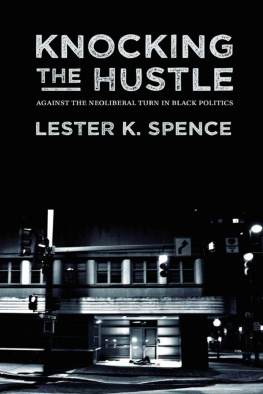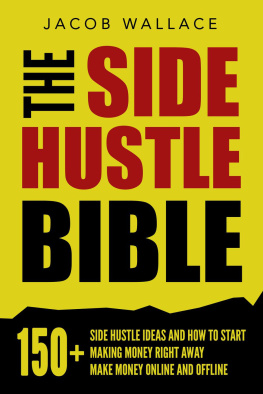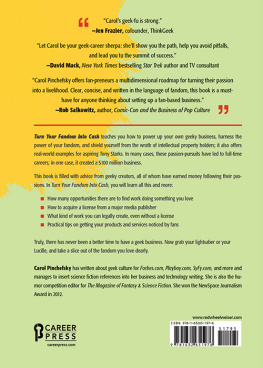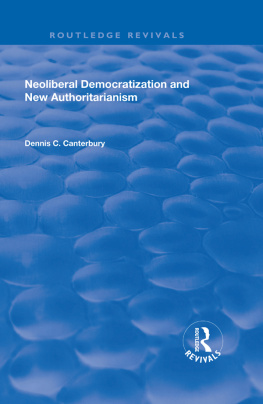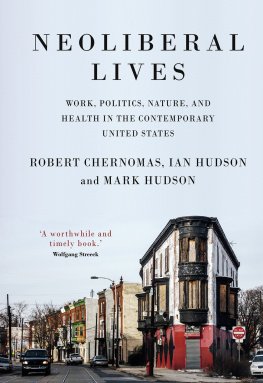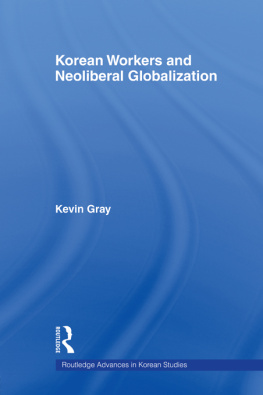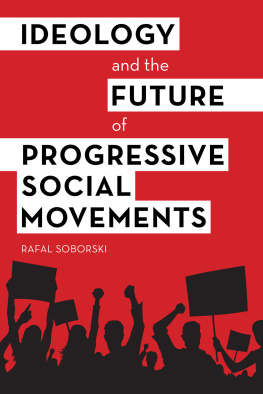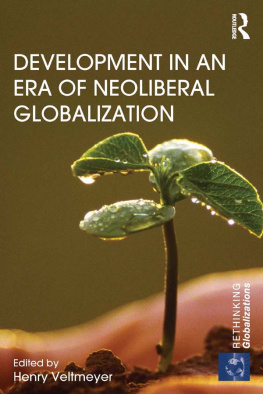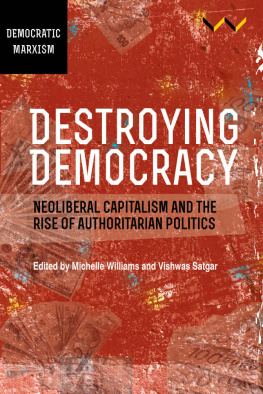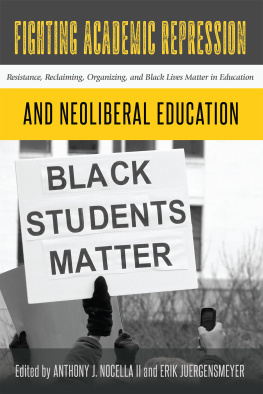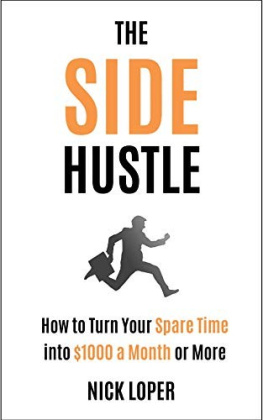KNOCKING THE HUSTLE: AGAINST THE NEOLIBERAL TURN IN BLACK POLITICS
2015 Lester K. Spence

http://creativecommons.org/licenses/by-nc-sa/4.0/
This work carries a Creative Commons BY-NC-SA 4.0 International license, which means that you are free to copy and redistribute the material in any medium or format, and you may also remix, transform and build upon the material, as long as you clearly attribute the work to the authors (but not in a way that suggests the authors or punctum endorses you and your work), you do not use this work for commercial gain in any form whatsoever, and that for any remixing and transformation, you distribute your rebuild under the same license.
First published in 2015 by
punctum books
Brooklyn, New York
http://punctumbooks.com
punctum books is an independent, open-access publisher dedicated to radically creative modes of intellectual inquiry and writing across a whimsical para-humantities assemblage. We solicit and pimp quixotic, sagely mad engagements with textual thought-bodies. We provide shelters for intellectual vagabonds.
ISBN-13: 9780692540794
ISBN-10: 0692540792
Cover photo: Lester Spence.
Book design: Chris Piuma.
Editorial assistance: Bert Fuller.
BEFORE YOU START TO READ THIS BOOK, take this moment to think about making a donation to punctum books, an independent non-profit press, @ http://punctumbooks.com/about/
You can click on the link to go directly to our donations site. Any amount, no matter the size, is appreciated and will help us to keep our ship of fools afloat. Contributions from dedicated readers will also help us to keep our commons open and to cultivate new work that cant find a welcoming port elsewhere. Our adventure is not possible without your support. Vive la open-access.

Fig. 1. Hieronymus Bosch, Ship of Fools (14901500)
CONTENTS
Dedicated to
LaVita Wright Liverspoon (19692014),
to Sam Isbell (19682001),
and to the Spence Clan
(Imani, Kamari, Kiserian,
Niara, and Khari)
ACKNOWLEDGMENTS
Thanks to my agent Shoshana Crichton for her work. Eileen Joy and the staff at punctum for taking the risk. Tamara K. Nopper for her wonderful editing assistance. The Breakfast Club for the semi-daily affirmation. Abigail Breiseth, Denise Lever, Camilla Seiler, Jay Gillen, and David Jonathan Cross, for thoughtful comments (and to Sam Chambers, Bret Gustafson, Clarissa Hayward, Fredrick Harris, Taeku Lee, Tamara Nopper, Rogers Smith, Steve Teles, and Dorian Warren for comments on the SOULS article this comes out of). The Sons of Blood and Thunder for Manhood, Scholarship, Perseverance, and Uplift (Sam Kirkland, Darius McKinney, Glenn B. Eden, Selvan Manthiram, Lee Rudolph, Kurmell Knox, and Caurnel Morgan in particular). Hanes Walton, Richard Iton, Nick Nelson, and Stuart Hall (RIP) for providing examples. The Department of Political Science and the Center for Africana Studies at Johns Hopkins University for providing a home. The members of Hopkins noon basketball game for providing a court. My children and family for providing a reason. The Institute for Research in African-American Studies at Columbia University, the Murray Weidenbaum Center at Washington University in St. Louis, and the Political Science Departments at the University of California at Berkeley and the University of Pennsylvania for providing a platform. Don Palmer and Beth Frederick, for providing a third space. The Red Emmas Collective, LBS, RAF, the Algebra Project, RTHA, West Wednesdays, Equity Matters, BUC, and the general 313, 248, and 734 area codes (Detroit, Inkster, Ann Arbor, and Southfield in particular) for providing alternatives. Marc Steiner for providing ammunition. And as always a special thanks to those who antagonistically cooperated with me in writing this book. The errors of course, are mine.
FOREWORD
In 1896 Paul Laurence Dunbar published a poem titled We Wear the Mask.
We wear the mask that grins and lies,
It hides our cheeks and shades our eyes,
This debt we pay to human guile;
With torn and bleeding hearts we smile,
And mouth with myriad subtleties,
Why should the world be over-wise,
In counting all our tears and sighs?
Nay, let them only see us, while We wear the mask.
We smile, but, O great Christ, our cries
To thee from tortured souls arise.
We sing, but oh the clay is vile
Beneath our feet, and long the mile;
But let the world dream otherwise,
We wear the mask!
Dunbar writes of black men and women at the turn of the twentieth century forced to wear the mask because of racism.
Ive worn a mask, but not that one.
Im writing this draft a day after I received word that my house has been saved, with saved placed in quotes because I am still in the middle of Bank of America hell. I had gone almost three years without payingthe last check I remember cutting to the bank was in December of 2010 or January 2011. I remember the moment I decided to stop like it was yesterday, just like I remember the moment two men came to my home to repossess my car.
Let me back up a moment.
* * *
October 2006
It was 1:30 AM on a late Saturday night and I was in my office, working. There are probably three aspects of being a professor most people outside of the Academy routinely misunderstand. The first aspect they misunderstand is the role writing and research play in our jobs and in our lives. I wasnt up at 1:30 AM because I was thinking about a lecture, or preparing for class. I was up club late because I was writing. Trying to scratch out one more paragraph, one more sentence, one more word. And failing miserably. Relatedly, the second thing they misunderstand is how hard writing can be, even for someone like meIve been writing in one way or another since I was 3 years old. One of the reasons I decided to pursue a job in the Academy in the first place is because I knew that if I played my cards right Id be able to write and collect a check doing it. But that doesnt mean its easy. Particularly under stress.
Which brings me to the third aspect. The Academy is like a multi-tiered economy, with four types of intellectual laborers. At the top are tenured professors, people who have the equivalent of lifetime jobs. Under them are tenure-track professors, people who do not have lifetime jobs but have the potential to get them if they work hard. And under them are adjunct faculty, who are not tenured and do not even have the potential to be tenured, and live incredibly precarious lives even though in many cases they have PhDs. And then alongside of them to a certain extent, are graduate students, people who want to become tenure-track professors so they can become tenured professors, but given the paucity of tenure-track jobs will have to fight hard not to become adjuncts.
I was on the tenure track, and knew I was hanging by a thread.
So I worked. In this case about 45 minutes too long.
Barely two minutes after I left campus a white Jeep Cherokee smashed into my minivan.
I was ok, but the car wasnt.
The minivan was the only car we had. And it was just about to be paid off. My wife and I didnt have savings for a down payment for another car. We didnt even have enough money to get reimbursed for a car rental. And we had five children to shuttle back and forth.
For a week local friends shuttled us back and forth. I bought a bus pass, and took the bus to work. Because we homeschooled our kids we were part of a large black homeschool network. The parents in this network brought groceries, prepared meals, and helped shuttle our kids around. We were ok for a couple of weeks.
Next page
